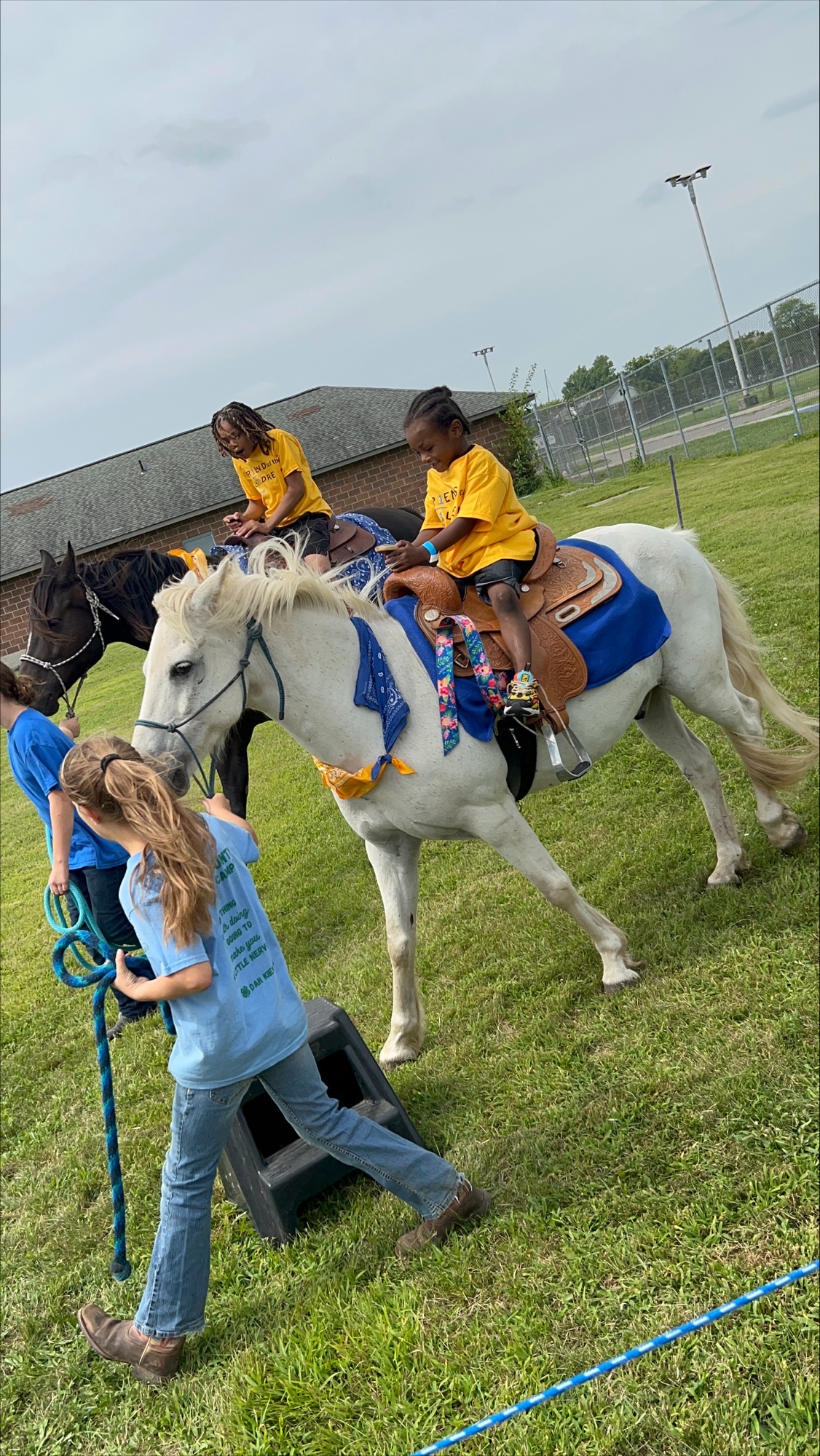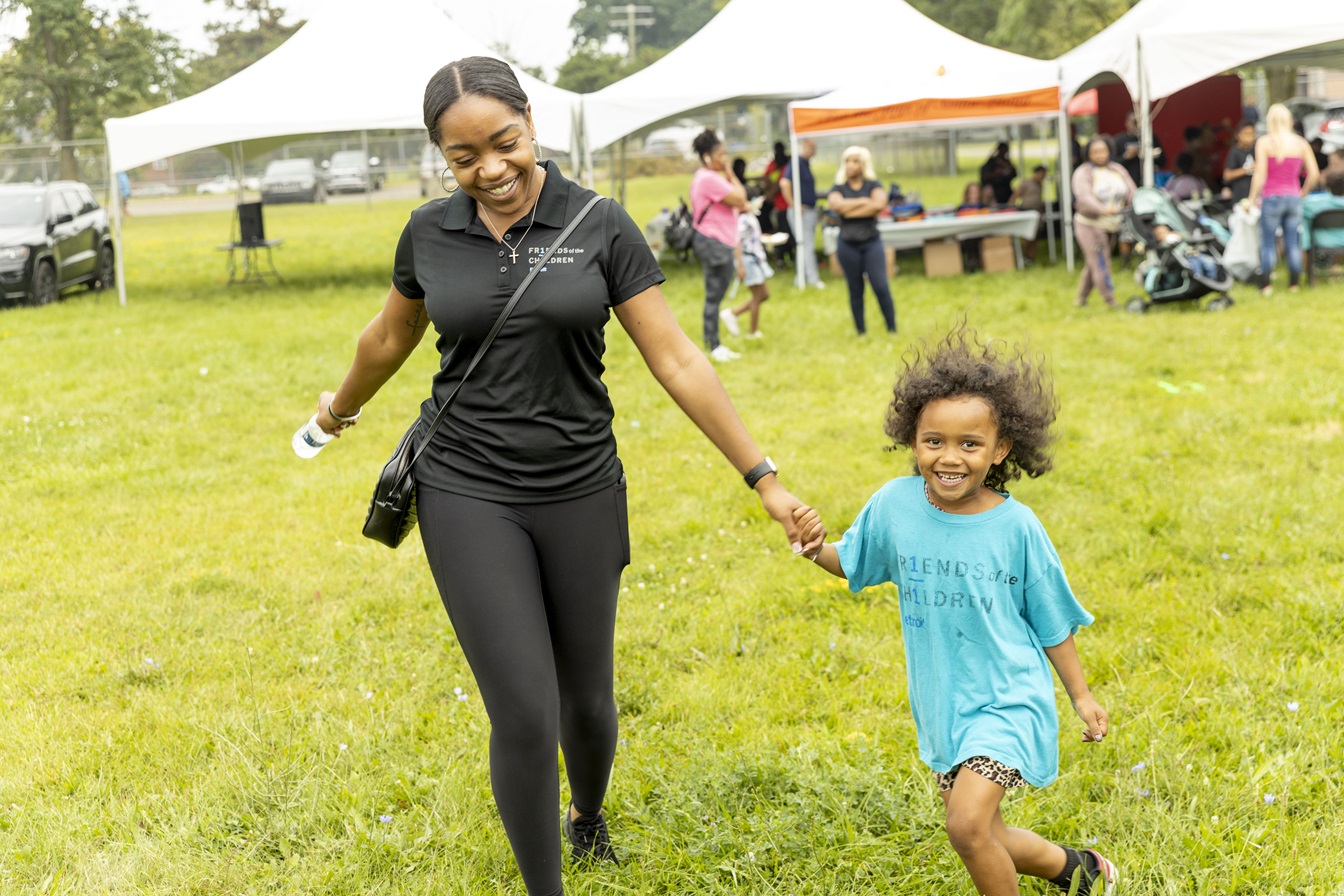
Friends of the Children Detroit Empowers Youth to Overcome Obstacles and Fulfill their Potential
Friends of the Children Detroit is one of the newest chapters of this national organization that is distinguished by its used of salaried, professional mentors. Mentors and mentees meet one on one, and the mentors stay with their mentees all the way through high school graduation—and sometimes beyond. It’s a program that yields results, in particular for kids struggling with difficult circumstances such as poverty, homelessness, and incarcerated parents.
All of the children in Friends Detroit are from low-income homes, and are beset with the kind obstacles that kids often cannot surmount on their own. There is ample proof, however, that consistent adult mentors can make a critical difference in a child’s life, helping to offset the kind of issues that get in the way of academic and life success. Friends of the Children Detroit has the potential to change the trajectories of its young participants lives, reason enough to lend our modest support to this initiative through our small grants program.
We put some questions to Friends of the Children Detroit Executive Director Derschaun Monique Brown, to learn more about this work:
Kars4Kids: Can you tell us something about your target demographic—the children you serve? How many children participate in your programs?
Derschaun Monique Brown: Children served by Friends Detroit are currently between the ages of five and eight, formative years for mental, physical, language, and social skills. We serve 64 children (32 boys and 32 girls) and their caregivers (64 total), 90%+ of whom identify as Black/African American. These children are from low- to moderate-income backgrounds and attend high-poverty Title I schools. All our children (100%) qualify for free or reduced-price lunch and their families live within disadvantaged neighborhoods throughout Wayne County that suffer from systemic, deliberate racial discrimination, segregation, underfunded schools, and lack of access to basic services. While resilient, by the time they are in kindergarten our children have faced poverty, homelessness, violence, racial discrimination, lack of access to basic resources, parental incarceration, and substance abuse in the home. These experiences are referred to as Adverse Childhood Experiences (ACEs) and they have significant and pervasive long-term impact on child development. We currently have 74 children in our program.
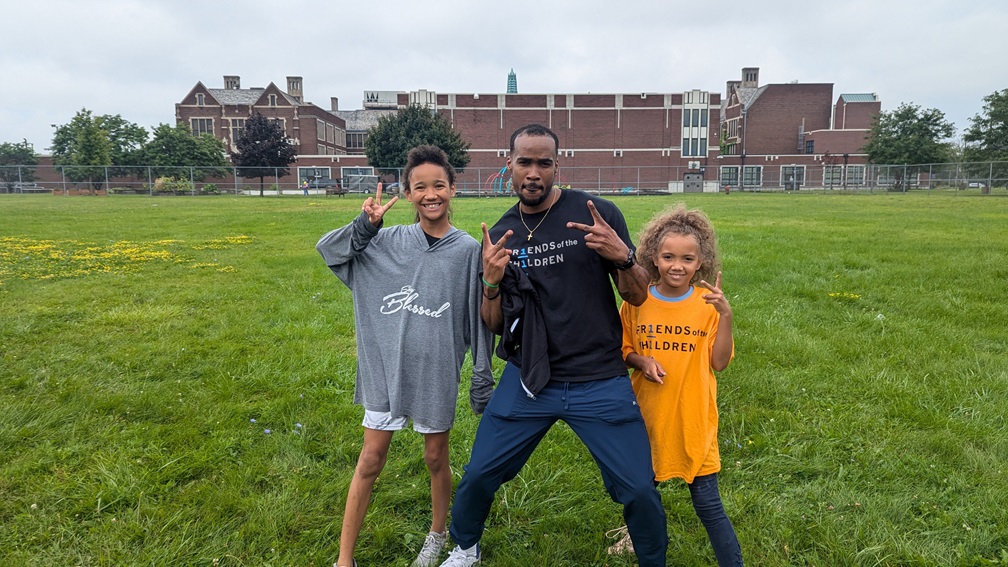
Kars4Kids: The star feature of the Friends of the Children Detroit is its 1:1 mentoring program. Why is 1:1 mentoring so important for these children, in particular?
Derschaun Monique Brown: Through our science-based, scalable model, we provide children and their families with intensive, individualized guidance from full-time, highly trained, salaried mentors (called Friends) from ages 4-6 and continuing through high school graduation. Poverty, trauma, and experiencing foster care have long been known to adversely affect a child’s long-term outcomes. Fortunately, research shows that a consistent, supportive relationship with a caring adult is the single-most important factor in shaping a child’s future. As Wayne County families of color continue to struggle with the health, educational, and economic impacts of the COVID-19 pandemic, Friends Detroit’s program provides a much needed and unique opportunity to improve their lives.
Through ongoing, year-round programming, our salaried professional mentors/Friends provide youth with intentional, consistent relationships and 2-4 weekly hours of holistic 1:1 support. Friends, children, and caregivers collaboratively set annual individualized Road Map goals in five research-based intermediate outcome areas to help children build solid foundations for lifelong health and wellness along with educational and economic success. These outcome areas include:
- School Success
- Prosocial Development
- Improved Health
- Making Good Choices
- Plans and Skills for the Future

Kars4Kids: Your mentors stick with their mentees for 12+ years—from kindergarten all the way through high school. We understand your chapter of Friends of the Children wasn’t established that many years ago, but in theory, what would happen if a mentee were to unfortunately drop out of school?
Derschaun Monique Brown: If a mentee were to unfortunately leave school, our commitment to them would remain steadfast. Given that our children are between the ages of 4-8, dropping out of school is not an option. In such a situation, our mentors would work diligently with the mentee and their family to ensure they are re-enrolled in school. We would explore all possible avenues, including alternative educational options like online schooling, to support the child’s continued learning and development. Our mentors are dedicated to helping their mentees navigate challenges and stay on track academically and personally.
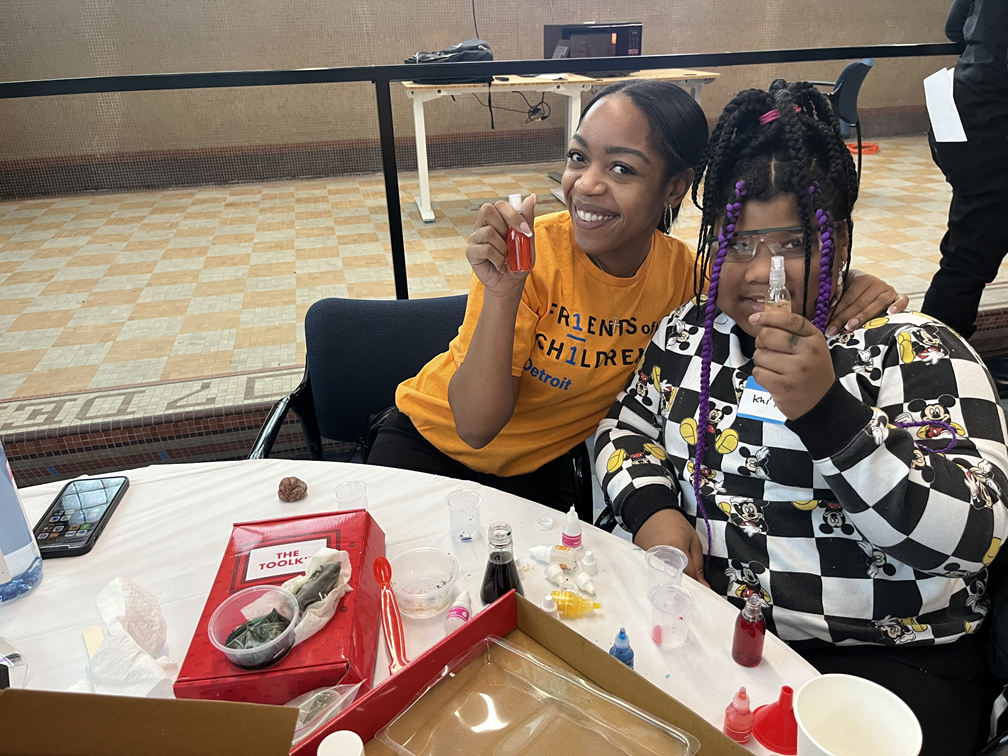
Kars4Kids: Your mentors don’t serve in a volunteer capacity, but as paid professionals. What are the benefits of having salaried, professional mentors? Do volunteers play any role in your organization?
Derschaun Monique Brown: At Friends of the Children-Detroit, having salaried, professional mentors provides several key benefits. Professional mentors are highly trained and fully committed to their mentees, allowing them to build deep, consistent relationships over the long term. This level of dedication ensures that mentors are available to support their mentees through all aspects of their lives, from school to home and beyond. Additionally, because they are paid professionals, our mentors can devote the necessary time and energy to each child, leading to more effective and personalized support.
While our mentors are salaried professionals, volunteers also play a crucial role in our organization. Volunteers support our mission by assisting with events, providing specialized skills in our Spark Innovation S.T.E.A.M. Lab, and offering additional resources that complement the work of our mentors. Their involvement enhances our ability to serve our children and families, creating a community of support that extends beyond the mentor-mentee relationship.
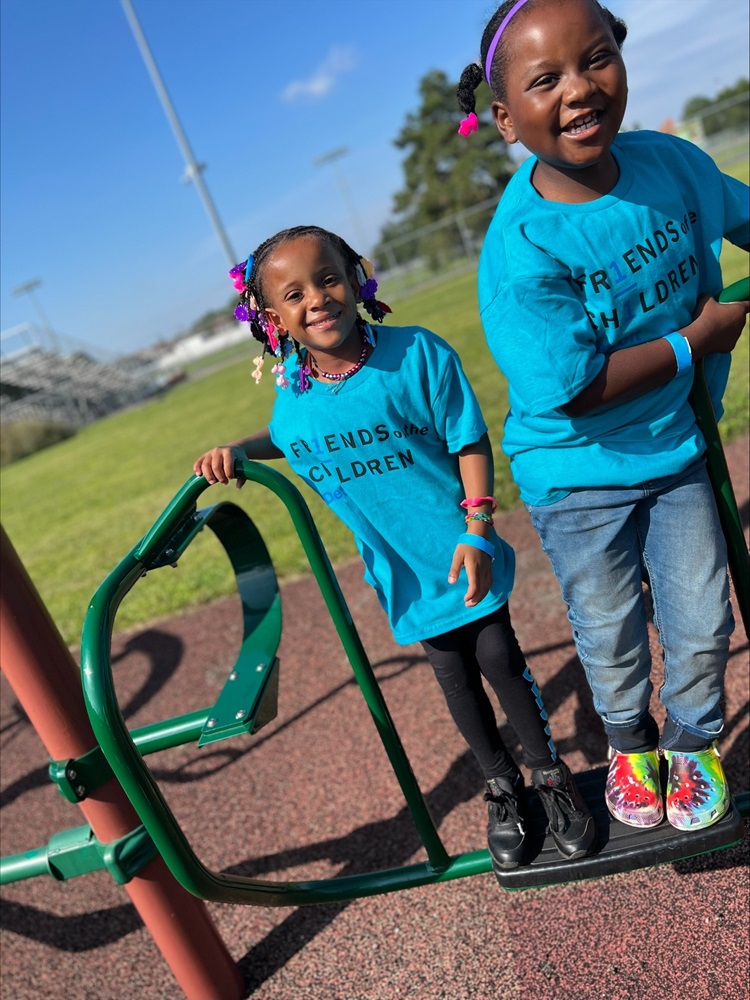
Kars4Kids: You don’t just work with children, but with their families, too, is that correct? In what capacity are you bringing families into the work you do with the children? What is the goal of what you call your “2Gen” approach?
Derschaun Monique Brown: Through our two-generation (2Gen) approach, Friends build trusting relationships with caregivers by listening to and learning about each family’s strengths. Leveraging these trusting relationships, Friends not only serve as the missing link to connect families with resources, but they empower caregivers to advocate for themselves and their children as they navigate complex systems, like education, child welfare, and the health care system. Our 2Gen approach was developed using caregiver input and research from our Network Partner, the Aspen Institute. Through our work with local families, Friends Detroit identified five key areas of focus that will best support our families to meet the goals they have for themselves and achieve stability:
- Financial literacy
- Workforce development
- Education
- Parenting skills
- Wellness
Kars4Kids: Can you tell us something about your work with youth and families in the foster care system?
Derschaun Monique Brown: At Friends of the Children-Detroit, we focus on serving youth who face significant challenges, including those involved in the foster care system. Our professional mentors build long-term, stable relationships with these children, providing consistent support as they navigate the complexities of foster care. We work closely with families, caregivers, and social services to ensure that our mentees have the resources and guidance they need to thrive, both in and out of the system.
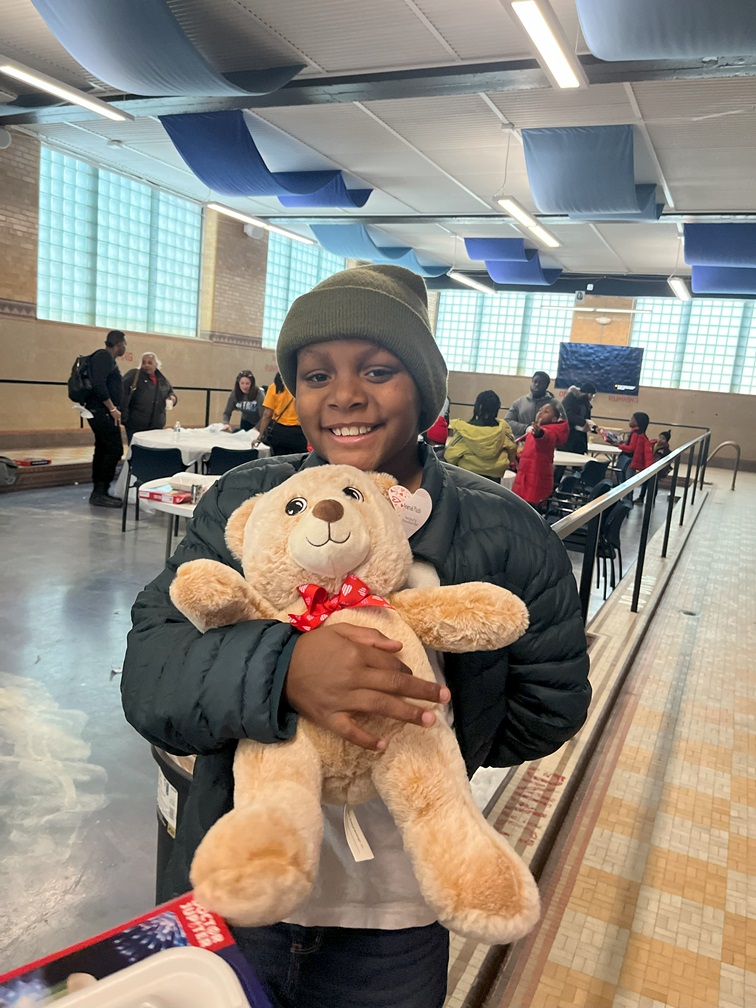
Kars4Kids: How is Friends of the Children Detroit addressing mental health issues in those you serve?
Derschaun Monique Brown: Friends of the Children-Detroit addresses mental health issues by providing consistent, long-term support through our professional mentors, who are trained to recognize and respond to the emotional and psychological needs of the children we serve. We work closely with families and mental health professionals to ensure that our mentees have access to the resources they need, including counseling and behavioral health therapy services when necessary. Our mentors also focus on building strong, trusting relationships with the children, which creates a safe space for them to express their feelings and challenges. By fostering resilience and emotional well-being, we help our mentees navigate life’s difficulties more effectively.
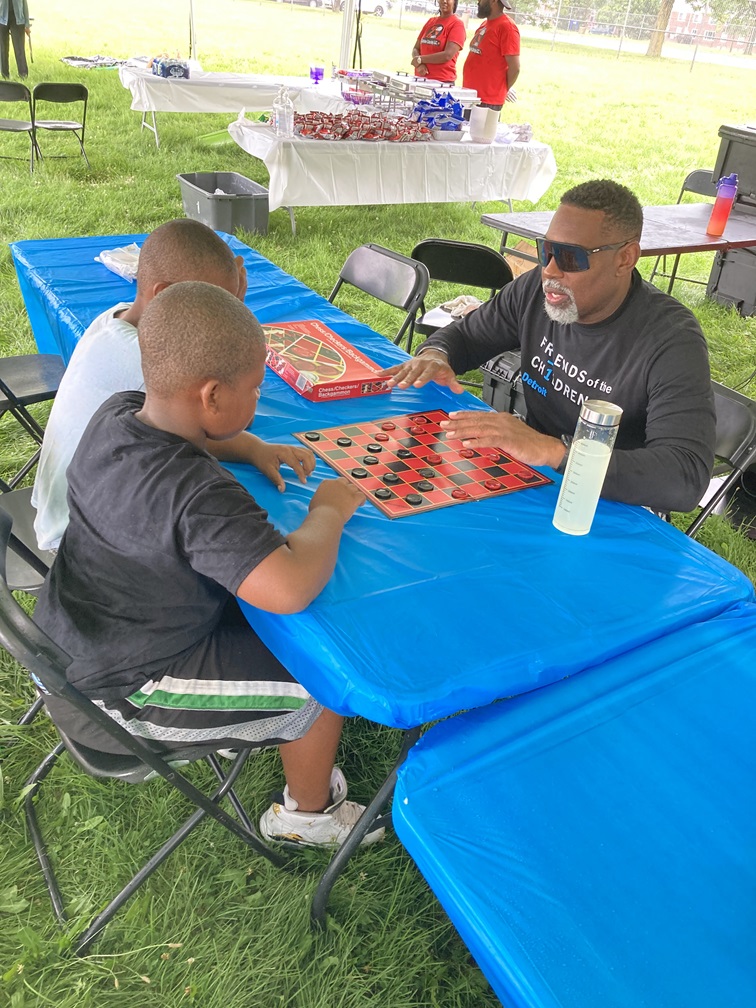
Kars4Kids: Can you share some specifics about the impact of the Friends of the Children program model?
Derschaun Monique Brown: Friends of the Children uses a research-based methodologies, and our commitment to outcomes informs programmatic and organizational decision-making. We use our Program Performance Scorecard to maximize quality, assess youth and caregiver progress toward goals, and adapt strategies, supports and interventions to improve effectiveness. Third party evaluators at NPC Research confirm our long-term program impact: 83% of our program graduates earn a high school diploma or GED; 92% go on to enroll in post-secondary education, serve our country, or find employment; 93% avoid the juvenile justice system; and 98% avoid early parenting.
These outcomes translate into real and long-term economic savings for the community. The Harvard Business School Association of Oregon (HBSAO) study on Friends of the Children found that every $1 invested in the organization yields more than $7 in cost avoidance, freeing up more funds for the community. Over the 12+ year period of Friends of the Children services, HBSAO estimated the dollar savings exceeded $900,000 per participant.
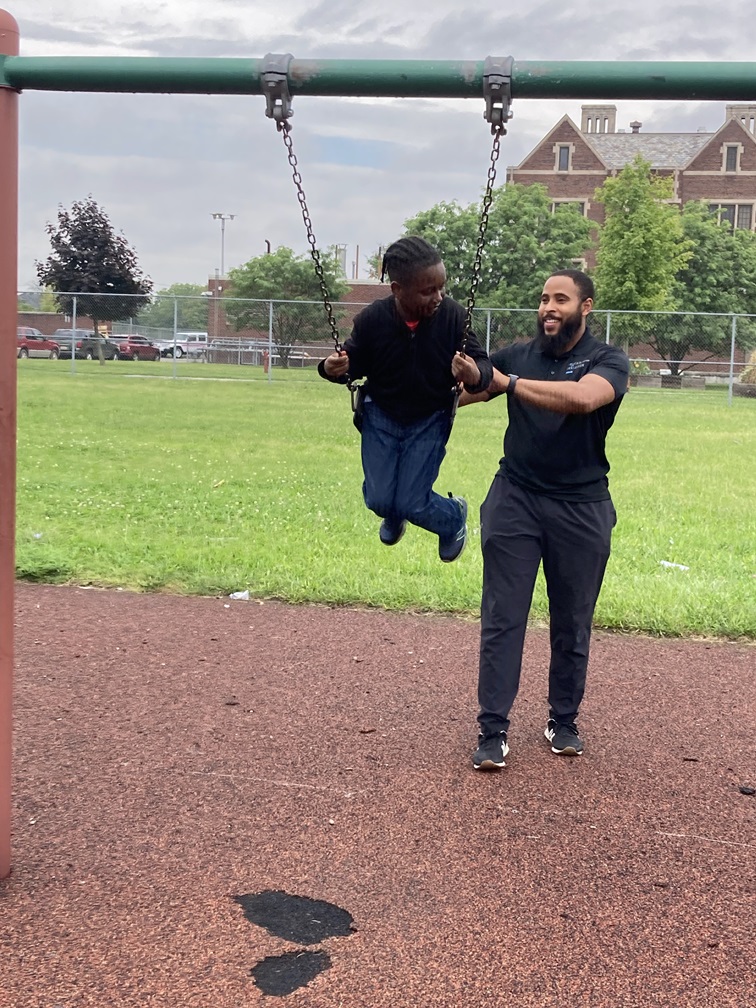
Kars4Kids: Aside from a paycheck, what attracts mentors to your program? What do they say about the work they do with their young mentees?
Derschaun Monique Brown: Mentors are drawn to Friends of the Children-Detroit by the opportunity to make a lasting impact on the lives of children who need it most. Beyond the paycheck, they are inspired by the chance to build deep, meaningful relationships with their mentees, knowing that their consistent presence can transform a child’s future. Many mentors describe their work as incredibly rewarding, noting the joy of watching their mentees grow, overcome challenges, and achieve their goals. They often speak about the strong bonds they form with the children, the sense of purpose they find in their role, and the fulfillment of being part of a mission-driven organization that truly changes lives. A quote from our Friend Michael Lipscomb says it best, “Live for something that will outlive you. These young people are our future and my future will outlive me and so I want to invest in them.”
Kars4Kids: What’s next for Friends of the Children Detroit?
Derschaun Monique Brown: What’s next for Friends of the Children-Detroit is focused growth and deepening our impact. We’re expanding our reach to serve 96 children and families in Detroit, with plans to increase the number of professional mentors to 12 and extend our services to additional communities in 2025. We’re also enhancing our support systems, such as mental health resources and family engagement initiatives, to better address the needs of those we serve. As we continue to grow, our goal remains the same: to provide consistent, long-term mentoring that empowers Detroit’s youth to overcome challenges and achieve their full potential.
